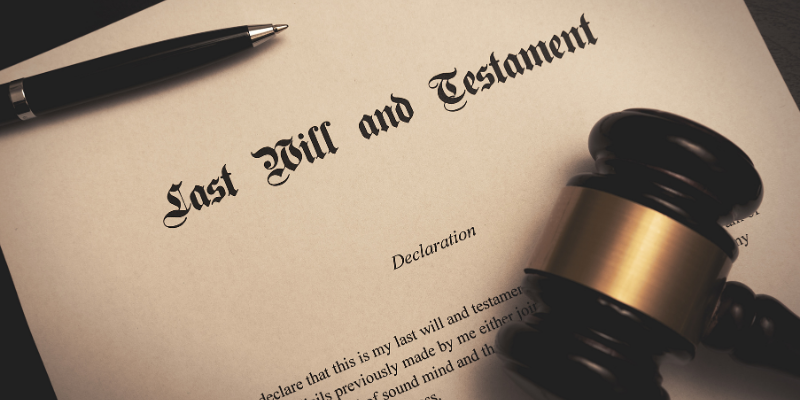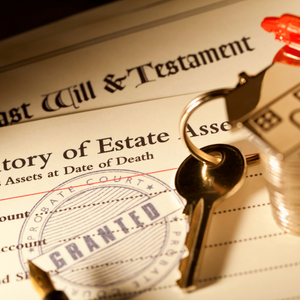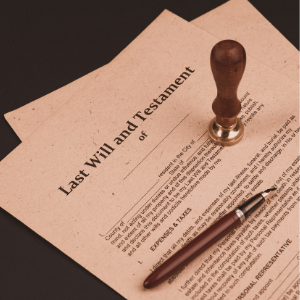
Selling an estate home in North Carolina can be a complex journey filled with both opportunities and challenges. This comprehensive guide aims to demystify the process, providing homeowners with the insights needed to navigate the real estate market with confidence. From understanding legal requirements and appraisals to marketing strategies and closing the deal, we cover everything you need to know to effectively and efficiently sell your property. Whether you are a seasoned seller or new to the market, our guide is tailored to help you achieve optimal results, ensuring a seamless transition into your next chapter.
Key Highlights
- Understanding and navigating the probate process is crucial in selling an estate home in North Carolina.
- Engaging a probate attorney ensures compliance with legal procedures for estate administration.
- A comprehensive document assembly is essential for streamlined estate property transactions.
- Deciding on repairs and managing timelines can optimize the success of the probate sale.
- Grasping closing costs and tax implications is vital for maximizing sale proceeds and transparency.
Understanding the Probate Process in North Carolina
The probate process in North Carolina can be complex, especially if you’re unfamiliar with the legal intricacies involved in selling an estate home. It’s essential to understand how a probate sale operates, the role of the executor, and the responsibilities involved in the transaction. Grasping these concepts will help you navigate the real estate market more effectively, ensuring you comply with necessary legalities when you decide to sell. This guide explains how a probate sale works and whether a house can be sold during the probate process, providing vital insights for potential sellers.
How Does a Probate Sale Work in North Carolina?

With the start of a probate sale of an estate in North Carolina, the probate court assigns a personal representative or an executor to a parcel of real estate to start managing that estate. During the process, they need to gather the deceased’s assets, pay off all outstanding debts, and then distribute the remaining assets among the heirs. During the process, one of the most critical aspects is and will always remain selling the real estate attached to the estate. The executor would need to understand the entire financial situation of the estate at various points. This includes any existing mortgages and other outstanding dues, such as taxes.
The moment the financial dues of the estate are resolved, that is, when the executor is in a position to sell the estate, they then need to work under the court’s supervision. The executor is required to obtain court approval regarding the listing of the estate, which is one of the many types of homes that are up for sale. With the court’s approval, the sale will then be aligned with North Carolina’s probate law, and all heirs of the estate will also be protected. The primary concern of this procedure is to ensure complete fairness throughout the process, from start to finish.
After a property is appraised, it is typically listed on the Multiple Listing Service (MLS) or showcased on other relevant platforms to attract prospective buyers. In placing the asking price, the executor needs to obtain a professional property appraisal to determine the home’s fair market value. This appraisal facilitates pricing strategies and ensures that the sale proceeds are equitable to the property’s worth. Since it is customary for probate sales to take longer than conventional sales in real estate, selling it at the right price, combined with tactical marketing, can drastically affect the home’s selling duration.
Whenever the Offer to Purchase is received, it is the purchaser’s responsibility to submit it to the probate court for confirmation before the sale can be finalized. The hearing to obtain confirmed court approval for the sale provides an additional precaution for the beneficiaries of the estate to ensure the property is not sold for a price lower than its worth. During this period, other potential buyers may be willing to offer a higher price, further increasing the price the estate receives. While this process ensures fair pricing, the increased time for final sale can be truly staggering. This can be especially true in cases where multiple bids are submitted, in which additional court reviews are expected.
Ultimately, understanding how a probate sale works in North Carolina is key to navigating the process effectively. Whether you choose to follow the traditional court-supervised route or opt for a faster, stress-free sale with Fair Cash Offers For Homes, proper planning and awareness of each step ensure a smoother transaction that benefits both the estate and its heirs.
Can a House Be Sold While in Probate?
In North Carolina, a house may be sold during probate, provided it is done within the parameters of the legal processes on record with the state and under the supervision of the probate court. The sale of property under probate can help pay off debts, facilitate the efficient distribution of assets, and reduce the overall financial burden of the estate. It is much more complex than simply listing the house for sale. The court must approve the executors of the estate, and they must follow a reasonable outline of steps to legitimize and clarify the sale.
In a situation like this, the probate court is often the starting point. The executor, as the personal representative of the estate, submits the relevant documentation to the court for permission to sell the estate’s assets and property. This must be justified by the estate, the beneficiaries, and the sale proceeds within the estate, the debts, the taxes, and the heirs to be distributed to. In the case where a will is left, the executor has to honor the will and its provisions. In the absence of a will, North Carolina’s intestate succession laws dictate the division of proceeds from a sale among legacy heirs.
With the court’s permission, the executor can now put the house on the market. At this stage, it is beneficial to have a comparative market analysis conducted or to enlist the assistance of a real estate agent specializing in probate sales. They can assist in determining new market pricing for the home, establishing new pricing principles, identifying the best time of purchase, or developing pricing strategies in the home market, all of which can be beneficial. Most crucial is the estate return. Communication, along with proper documentation, is vital, as these transactions are scrutinized more frequently for probate properties due to the legal procedures, which can take time to conclude.
The executor can now proceed with the sale once an offer has been received for the house. The court has to endorse the sale for it to be finalized. This ensures that the sale’s output is reasonable, the property’s value is at or slightly above market value, and the estate’s beneficiaries are fairly treated, which balances things out. During this time, the executor must carefully manage the offers made and all the accompanying disclosures. This is to ensure that there are no disputes arising from the heirs or creditors.
Legal Requirements and Probate Court Procedures
Understanding the legal requirements and probate court procedures in North Carolina is crucial for successfully selling an estate home. This stage involves complex processes, such as engaging with a probate attorney and compiling necessary documentation, all of which are essential to estate administration. An attorney’s role is pivotal in navigating probate court and ensuring compliance with court orders, while documents like the will and property deeds are vital for smooth transactions. Familiarizing yourself with these nuances can significantly streamline the selling of inherited property, ensuring accuracy and efficiency throughout the estate administration process.
Documents Required for Selling an Inherited Property in North Carolina

Selling an inherited property in North Carolina involves more than just listing the home—it requires careful preparation and proper documentation to ensure a smooth and legally compliant transaction. Having the correct paperwork in order is crucial for meeting probate court requirements, proving ownership, and protecting all parties involved in the estate. Whether the property is sold through a traditional listing or directly to a trusted home buyer, such as Fair Cash Offers For Homes, understanding the necessary documents can save significant time and prevent costly legal delays.
How to settle an estate legally starts with obtaining a signed copy of the will, if the individual had one, alongside the death certificate, as both are necessary to begin the probate process. These documents identify the heirs and provide proof of who has been vested with estate management power. If a will has not been made, the court will appoint an executor or administrator according to the intestacy laws in North Carolina. In this situation, the executor is issued a legal document known as letters of testamentary or letters of administration, which authorizes them to deal with the estate, including the sale of real estate. Property cannot be sold or transferred, within probate, without permission.
The executor is also obliged to capture a record of all the assets and liabilities of the estate. These include all properties, the total of which is outstanding debts and claims from creditors, if any. Each aspect of this documentation must be ascertained, and the probate court must be able to determine the total value of the estate. Debts would need to be cleared before the heirs receive any proceeds. Failing to complete this step will not result in the sale of a property and will lead to a blockage later in the process.
Along with all the documents showing proof of ownership and taxes paid, the property deed is an essential document because it serves as the sole verification of the legal title to the property. On the other hand, recent property tax statements and tax returns at the state or federal level indicate that there are no unpaid debts that would prevent the sale of the property. Executors should also maintain a detailed record of each transaction of the estate. Such transactions include, but are not limited to, payment of legal services, appraisal, and payment for the repair of the estate. These records not only demonstrate goodwill to the beneficiaries but are also required by the probate court to authorize the final distribution of the estate.
For executors seeking a faster and simpler alternative to the traditional sale process, working with Fair Cash Offers For Homes can make a significant difference. This North Carolina cash home-buying company specializes in purchasing inherited and probate properties directly from estates—often without requiring extensive documentation beyond proof of authority and ownership. By eliminating the need for repairs, appraisals, and lengthy buyer negotiations, they streamline the process, helping executors close the sale quickly while maintaining compliance with probate regulations.
Preparing an Estate for Sale
Selling an estate home in North Carolina requires time and effort. It prepares the estate for sale, which is the most time-consuming step. Deciding what to repair and the legal consequences that follow with inheriting a property are of utmost importance. Fulfilling the necessary upkeep and following the correct legal procedures after inheritance, the personal representatives give themselves an edge in the selling process, ensuring the sale of a property is valued and compliant with probate regulations in the most efficient manner. Moreover, understanding the considerations for estate property probate sales and how to inherit an estate are essential factors that will help you sell the estate while also increasing the estate proceeds.
Should You Make Repairs to a Probate Sale Home?

Determining whether or not to make repairs on a probate property in North Carolina is one of the most essential things executors or heirs will have to contemplate. The determining factor hinges on the current status of the property, the available liquid capital in the estate, and the possible ROI on the repairs. In many instances, a planned strategic improvement or two can make a property more attractive to many prospective buyers, and perhaps, its selling price as well, albeit minimally. Not all repairs, however, can be justified in terms of time and cost, primarily if the home is intended to be sold as quickly as possible during probate.
If the home that was inherited appears to be significantly distressed, some essential maintenance repairs might increase the property’s appeal to buyers. The most common repairs that can be undertaken include fixing a leaking roof, addressing structural issues, and making minor plumbing or electrical repairs. While these repairs are not minor, and increase the marketability of the property, if the increase in value is not substantial, then these repairs should not be made. The assistance of a qualified North Carolina realtor, whose specialty is probate sales, is valuable in determining the repairs most likely to provide a good return in the region, in relation to the estate’s goals.
Before undertaking any substantial work, it is also essential to consider the financial capacity of the estate. Many estates lack the necessary funds to cover repairs or renovations. In these circumstances, it is often best to limit repairs to work that is critical to habitability or repairs that mitigate safety hazards, such as addressing water damage, dealing with mold, or stabilizing the foundation. The executor, as the personal representative, must document all repair-related expenses and the corresponding approvals as part of the probate process to ensure transparency and court compliance.
Another essential factor to consider is timing. In North Carolina, probate sales can already take several months to complete due to the mechanics of the sales process, as well as the approvals required from the court. Adding a repair timeline only serves to extend the additional time, which could exacerbate holding costs such as insurance, utilities, and property taxes. The estate’s financial outcome is best reflected by these components, which are also suggested as balances to the delay of the sale price.
Steps to Take After Inheriting a Property in North Carolina
In New Carolina, inheriting an estate can be a meaningful experience, but it also presents challenges in translating it into actionable steps that ensure the estate is managed effortlessly. Multi-faceted, to say the least, these steps, when undertaken, tend to ease the probate process while also ensuring that a sale occurs seamlessly when the time comes.
First, no more important action can be taken than to ensure a proper appraisal is performed. This will determine the property’s cross-market value. This appraisal is fundamental as it defines a baseline value for a myriad of essential nuances. Not only will each beneficiary be assured that they are receiving proper value, but also, the estate will more than suffice the requirements for probate in New Carolina. A proper valuation will also inform the decision regarding the property and whether it should be remodeled before being put up for sale.
These obligations can be tied to the home being purchased, but once the property’s value is established, the obligations also need to be understood. Real estate inheritance often comes with the burden of the previous owner’s debts, including balances on mortgages, property taxes, and liens. Understanding obligations and debts early on can help strategize for potential complications that may arise during the sale and guide the proper distribution of proceeds among the heirs. This also helps in making the property investment more attractive, along with clearing all debts and resolving title matters before listing the home.
This consequence can be more persuasive. Next in line comes bridging the gap of a title. A title report is a nearly essential document that outlines ownership disputes, boundary issues, and other problems that can hinder completion. These problems, if they exist, need to be identified and resolved before a smoother transaction can take place and the trust of the buyers can be earned. The title that has no encumbrances can also be completed in a speedy timeframe. This means that all beneficiaries and the executor in the transaction have addressed potential issues that may arise in the future due to properties that still have no occupants.
Tax ramifications arise when selling real estate that has been inherited. In North Carolina, there is no state inheritance or estate tax, but some estates may be subject to federal estate taxes. For clarification on your liabilities and federal tax compliance, it is advisable to consult with a tax consultant or an estate attorney. Proper records, such as real estate appraisals, receipts for repairs, and other pertinent financial documentation, can demonstrate good faith when the Court or IRS is examining your Filings.
For many families, managing the sale of an inherited property can feel overwhelming. This is where Fair Cash Offers For Homes can provide valuable support. They specialize in buying inherited and probate properties directly for cash, helping North Carolina homeowners avoid lengthy repairs, showings, or real estate agent fees. Working with a reputable cash home buyer allows executors and beneficiaries to sell the property quickly, settle debts efficiently, and distribute proceeds without unnecessary delays.
Inheriting a property in North Carolina involves careful coordination between financial, legal, and emotional factors. By appraising the home, clearing debts, resolving title issues, and understanding tax implications, you can confidently move toward closing a successful sale. Whether you decide to sell traditionally or through a trusted company like Fair Cash Offers For Homes, taking these proactive steps ensures the estate is handled smoothly and in the best interest of everyone involved. Sell your Fayetteville house fast for cash with Fair Cash Offers For Homes. Contact us at (919) 551-8506 today!
| Key Steps | Considerations | Recommendations |
| Property Assessment | Hire a professional appraiser to determine the estate’s market value. | Ensure appraiser is certified and experienced in North Carolina markets. |
| Repair and Maintenance | Address any structural issues, plumbing, electrical, and aesthetic repairs. | Prioritize cost-effective improvements with high ROI. |
| Decluttering and Staging | Remove personal items and create a neutral, inviting space for potential buyers. | Consider hiring a professional staging company. |
| Legal and Documentation | Ensure all legal documents and disclosures are in order. | Consult with a real estate attorney familiar with North Carolina regulations. |
| Marketing Strategy | Develop a plan to effectively market the estate to target buyers. | Utilize online listings, social media, and local advertising channels. |
| Open House and Showings | Schedule and prepare the property for potential buyer visits. | Keep the estate clean and maintain curb appeal. |
This table provides a succinct overview of the necessary steps and considerations for effectively preparing an estate for sale in North Carolina.
Understanding Selling Costs and Taxes
You must evaluate the costs and taxes associated with estate property sales in North Carolina. These factors may affect the profit margin and legal standing of the sale. Costs related to closing the deal and pending tax obligations are peculiar to the inherited property. Knowing the selling price-to-cost ratio, along with a selling cost calculation, ensures preparedness for the selling expenses. Taxes are another factor that necessitates a selling price calculation for profit maximization, as legal obligations in North Carolina must be followed.
Closing Costs and Taxes on Selling an Inherited Property in North Carolina

Selling an inherited property in North Carolina involves more than just listing the home and finding a buyer. Understanding closing costs and tax implications is essential for accurate financial planning and maximizing your profits.
Closing costs encompass a range of fees payable at the closing stage of the transaction. In North Carolina, these typically cover:
- Title insurance
- Attorney fees
- Recording fees
- Real estate commissions
- Property taxes owed up to the closing date
You can negotiate some of these expenses between the buyer and seller, but it’s essential to keep within the bounds of local culture and etiquette. Closing costs can significantly reduce the sale proceeds, so it is prudent to budget for them upfront to avoid any unpleasant surprises later in the process.
While North Carolina does not have a state inheritance tax or estate tax, there may still be a federal obligation, such as the Capital Gains tax. Capital Gains tax is only applicable on the gains made from the sale of the property. There is a special tax treatment for inherited property, known as a “stepped-up basis,” which means the property is valued at its fair market value at the time of inheritance. This step typically reduces the taxable gain, resulting in a lower total tax payable.
Executors and beneficiaries must maintain files that demonstrate the appraised value of the property and any expenses associated with it. Meeting with a tax preparer or a tax lawyer is a smart step to take to comply with the federal tax laws and maximize profitability properly.
Some real estate agents and attorneys charge a flat fee as opposed to billing by the hour. This puts a cap on expenses, making them easier to predict. This can help with cost control and reduce the risk of budgeting for hidden legal or administrative costs. Executors must determine whether a flat fee or a variable fee is more beneficial, taking into account the estate’s complexity and value.
Controlling and properly allocating closing costs, along with tax obligations, is essential for a successful and smooth real estate sale. Executors who properly plan, facilitate stepwise documentation of transactions, and seek appropriate expert opinions can minimize delays and also curb financial loss.
Having a clear grasp of the laws and the financial aspects of North Carolina orders helps you avoid complicated regions that might decrease the estate value. Furthermore, you will ensure that the benefits are distributed fairly and transparently among the beneficiaries.
Frequently Asked Questions
What responsibilities does the executor have when it comes to probate sales in North Carolina?
An executor, or personal representative as they are alternatively called, is in charge of the estate of the deceased. This includes collecting assets, paying obligations, and obtaining court approval to sell a property as a means of maintaining a transparent and honest sale process for the estate’s beneficiaries. The executor takes care of any post-sale compliance with the court’s procedures in the probate of the estate.
Can a house be sold during probate in North Carolina?
You can sell a house during probate in North Carolina, but you must abide by a set of guidelines and procedures, such as obtaining the approval of the court. The executor must file a proposal to the probate court, the court of jurisdiction, and prove that it is advantageous to funnel the proceeds to the estate. The court must confirm any offers received to ensure the sale of the estate is guaranteed.
What are the necessary documents needed to sell an estate home during probate?
An estate home under probate can be sold, but a particular set of legal documents must be in place. This includes, but isn’t limited to, a copy of the will that is legally certified, the deed to the estate, a testament for the deceased, a detailed list of estate assets along with the formed liabilities in the estate, testamentary letters, claims from creditors, and tax returns of the estate. These documents are part of the estate administration process, ensuring that the sale is carried out legally and seamlessly.
Why is a probate attorney necessary during the selling process for a home in probate in North Caroline?
A probate attorney helps navigate the complex estate administration process. They guarantee that the probate process is court-compliant and work with executors to divide the estate, and also defend the estate in court. They are helpful, especially in preparing legal documents and resolving disputes that arise.
What are the costs of selling inherited real estate in North Carolina?
Costs include understanding closing costs, such as the settlement fee and other attorney work, as well as other closing expenses. There is also the possibility of federal taxes, especially on capital gains tax. Executors need to plan and work with a tax planner to limit the estate’s expenses and increase the value for the beneficiaries.
Helpful North Carolina Blog Articles
• Can You Sell a House With a Mortgage in North Carolina
• How to Sell a House While Relocating in North Carolina
• Selling a House In Probate In North Carolina
• For Sale by Owner: Paperwork for Selling a House in North Carolina
• Selling a House During Divorce in North Carolina
• Selling a House With Septic Tank Problems in North Carolina
• Selling My Parents’ Home to Pay for Elder Care in North Carolina
• Squatter’s Rights and Laws in North Carolina
• Who Pays HOA Fees at Closing in North Carolina
• How to Sell a Condemned House in NC
• Does a Seller Pay Closing Costs in North Carolina?

